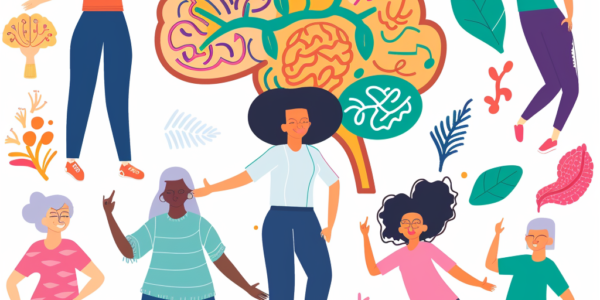Key Spices in Diet Can Lower Risk of Joint Pain, Experts Say
Learn how adding key spices to your diet can lower the risk of joint pain in later life. Experts suggest incorporating anti-inflammatory ingredients like cinnamon, ginger, pepper, and garlic to reduce chronic inflammation and prevent conditions like arthritis. Find out how these spices can help alleviate inflammation and potentially mitigate the risk of arthritis in later life.
McMaster University study finds schools and daycares not significant source of COVID-19 transmission with prevention measures in place
McMaster University researchers found that schools and daycares were not significant sources of COVID-19 transmission when infection prevention and control measures were in place. The review, published in The Lancet Child and Adolescent Health, suggests that proper measures like masking, vaccinations, and test-to-stay policies are effective in reducing spread. This challenges the need for prolonged closures and emphasizes the importance of maintaining such measures for safe in-person learning.
Groundbreaking Study Reveals Potential for Self-Repair and Regeneration in the Human Heart
Groundbreaking study published in Nature Cardiovascular Research reveals potential for human heart self-repair and regeneration, offering hope for paradigm shift in regenerative medicine. Research challenges existing paradigm, suggesting targeting microenvironment rather than specific cell type is instrumental in healing the injured heart.
Switching to a vegan diet? Beware of its 6 side effects
Planning to switch to a vegan diet? Be aware of the 6 potential side effects, including nutrient deficiencies and protein deficiency. Learn more about the pros and cons of a vegan diet and how to ensure you get all the essential nutrients your body needs.
Young woman misdiagnosed with cancer
Read Lucy Younger’s harrowing journey of being misdiagnosed and dismissed by doctors before finally being diagnosed with a brain tumor. Despite being told she was ‘too young’ to have cancer, her persistence and advocacy for her own health ultimately led to a life-saving craniotomy.
Mother calls for more research into childhood leukaemia treatments
Tajana, the mother of a young leukaemia patient, is advocating for more research into less gruelling treatments for children with the blood cancer. Her son Henry, 13, is in remission after three years of chemotherapy. Tajana and Leukaemia UK are calling for more investment in treatments that work more quickly and take less of a physical toll on the children undergoing them.
Study Finds Long-Lasting Effects of Smoking on Immune System
A recent study published in Nature found that cigarette smoking can have long-lasting effects on the immune system, persisting even after quitting. The study analyzed the immune responses of 1,000 individuals and also identified a higher body mass index and previous cytomegalovirus infection as influential factors. These findings emphasize the enduring consequences of lifestyle choices on immune function and shed light on the long-term impact of smoking on overall health.
Infant hospitalized in Toronto with measles
An infant in Toronto has been hospitalized after contracting the measles, prompting Toronto Public Health to investigate the confirmed case. With measles being highly contagious and symptoms including red rashes, fever, cough, and fatigue, it is crucial for parents to prioritize their children’s vaccination to prevent the spread of measles and protect the community.
Severe Menopause Symptoms Linked to Dementia Risk, Study Suggests
A recent study from the University of Calgary suggests that severe menopausal symptoms could be early indicators of dementia. Dr. Zahinoor Ismail’s research on Canadian brains and aging from CAN-PROTECT has found a correlation between menopausal symptoms and cognitive impairment, neuropsychiatric symptoms, and dementia risk. The study, which includes 2,400 participants, highlights the impact of menopause on the brain and the potential benefits of estrogen-based treatments.
The Debate Over the Pullout Method
The pullout method, also known as withdrawal, has sparked a debate among doctors and sexual health experts. While some advocate for its effectiveness, others remain skeptical. Despite its widespread use, it continues to be a topic of contention in the realm of birth control. The debate revolves around its effectiveness in preventing pregnancy, with studies showing that when used correctly, withdrawal can be as effective as male condoms. The appeal of the pullout method lies in its accessibility and cost-effectiveness, but healthcare providers continue to express skepticism due to the potential for incorrect usage. As the debate persists, it raises important questions about the accessibility and acceptance of various forms of birth control.










